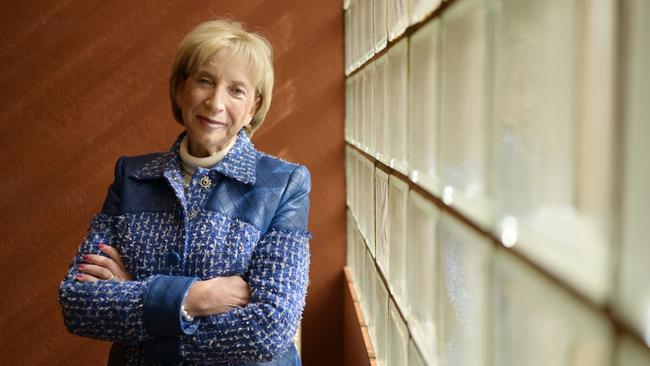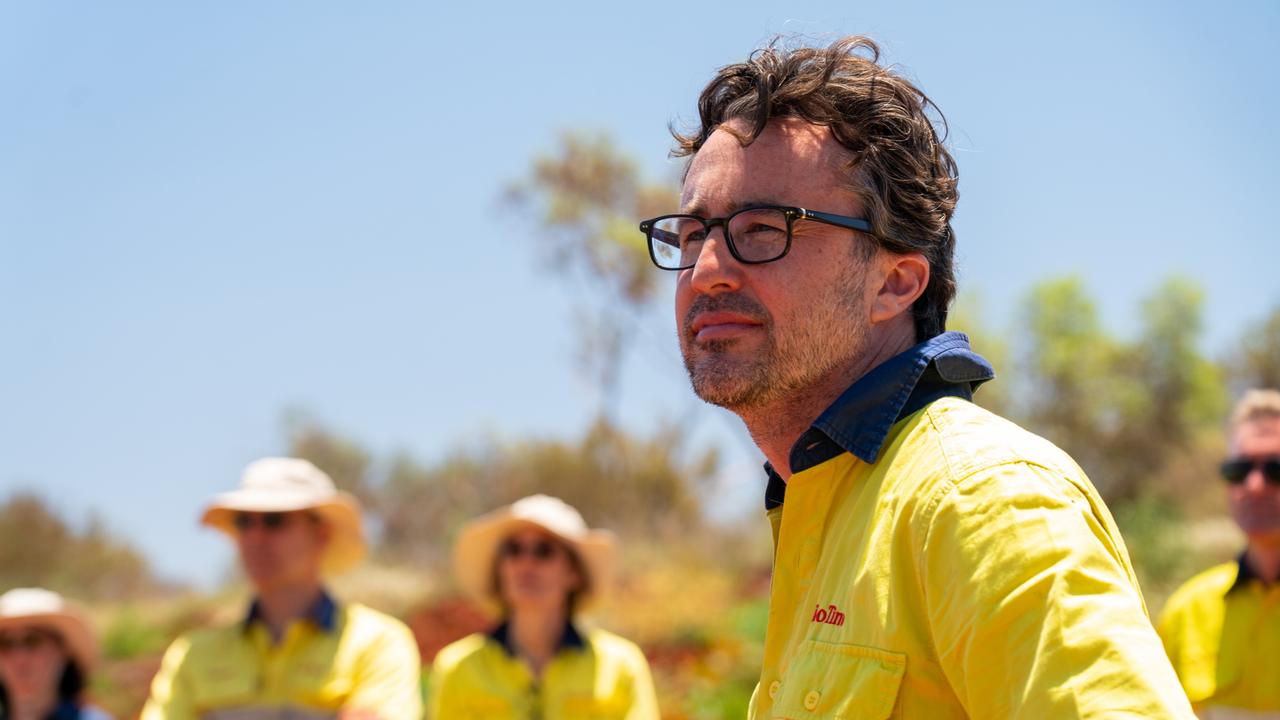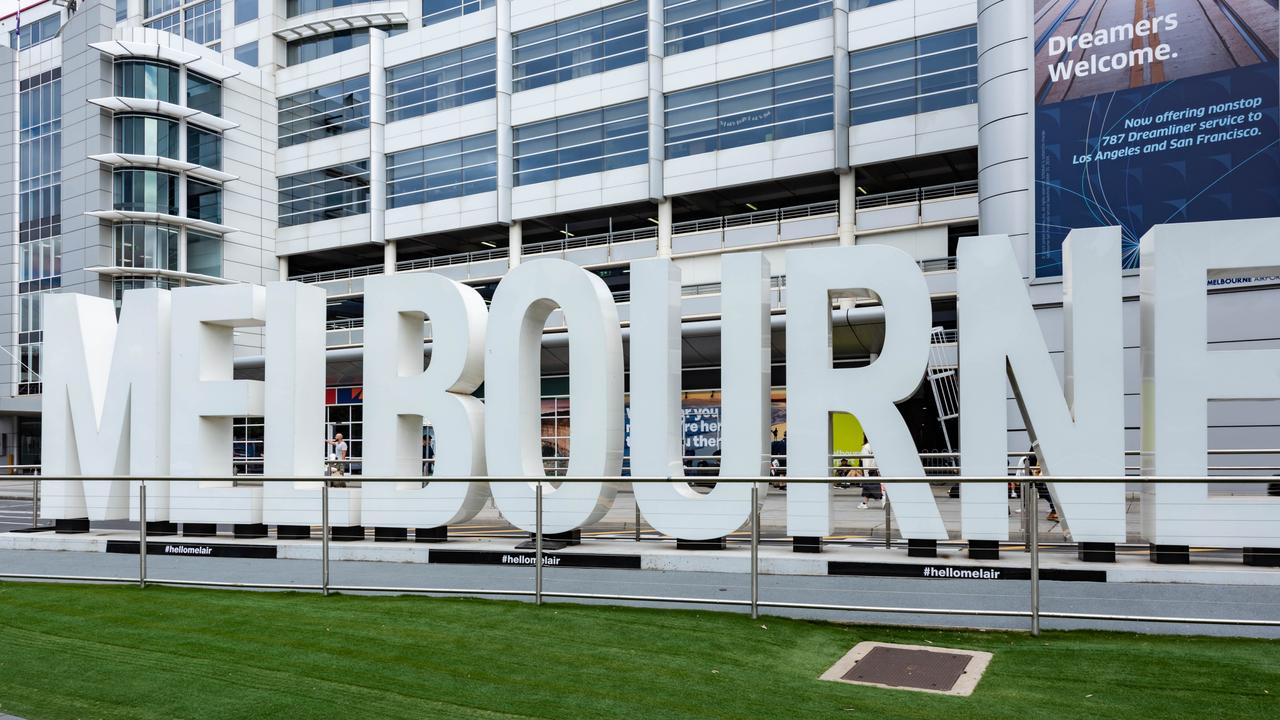Resources minister Madeleine King says strategic critical minerals reserve will deliver taxpayer returns
Madeleine King expects Labor’s controversial critical minerals reserve to deliver cashflow and returns to the government.

Resources minister Madeleine King expects Labor’s critical minerals strategic reserve to deliver financial returns to the tax payer and make Australia safer.
Ms King still cannot say what critical minerals the re-elected Albanese government intends to hold in its strategic reserve more than six weeks after deciding on the controversial market intervention.
She intends to form a taskforce to work out the details of the election policy, and said it might take until July 2026 to start accumulating minerals deemed strategically important to the economy.
Lynas Rare Earths chief executive Amanda Lacaze warned that some Western nations will never again get access to high performance permanent magnets from China in the fallout from the trade war between Washington and Beijing.
Ms Lacaze said no such magnets – used in aerospace, defence, wind turbines and electric vehicles – had left China since the spat over tariffs.
“They will start to leave, but there will be certain Western countries that never get high performance, rare earths permanent magnets from China again,” she said on Wednesday, appearing at an event in Perth where Ms King also spoke.

Ms King and Ms Lacaze have clashed over the merits of the strategic mineral reserve, with the Lynas boss predicting the policy will create idle warehouses.
The tension comes amid new findings from the International Energy Agency that investment momentum in critical minerals has weakened with spending up by just 5 per cent in 2024, down from an increase of 14 per cent in 2023.
Lynas last week broke China’s monopoly on processing heavy rare earths by producing dysprosium at its refinery in Malaysia. The company has said it will give US defence contractors priority in the supply of dysprosium, a key ingredient in advanced magnets.
“The US defence industrial base is now secure,” Ms Lacaze said.
Ms King told the same conference that Australia would be “stronger and safer” by virtue of the reserve.
“We are going to have a taskforce because you can’t just do these things on a whim,” she said.
Mr Albanese announced the policy on April 3 as he listed actions Australia would take in response to tariffs imposed by US president Donald Trump.
“A Labor government will establish a critical mineral strategic reserve. I’ll have more to say on this over coming weeks,” he said at the time.
In her update on Wednesday, Mr King said the taskforce would finalise the structure, including what prices the government might offer, how reserves would function and where the reserves would be located.
“I would expect the reserve will generate cash flow and sales to key partners, and deliver a return to government,” she said.
“Where it is required or advantageous, given market conditions, stockpiles of bespoke critical minerals may be accumulated.
“It is anticipated in most cases these will be small and temporary. Participation in offtake agreements will be voluntary.”
The International Energy Agency meanwhile warned China’s dominance in a broad set of critical minerals and energy-related supply sources was a source of concern for Western nations.
“If any country owns more than 70 per cent of strategic minerals we think it is an important challenge to be addressed,” IEA executive director Fatih Birol told The Australian.
“And we also know that as of today, more than half of those minerals are subject to some type of export restrictions. So therefore it is a real worry and we definitely need to diversify if we want to provide more security to the markets.”
A report released by the IEA on Wednesday found China was the leading refiner for 19 of the 20 energy related strategic minerals analysed, and has an average market share of around 70 per cent while 15 of the minerals have exhibited greater price volatility than oil.
China’s export restrictions on dysprosium and terbium, as well as permanent magnets that include heavy rare earths, have caused major concerns among Western governments and defence leaders.
The IEA said it was conscious the spread of export restrictions is raising the risk of painful disruptions.
“Even in a well-supplied market, critical mineral supply chains can be highly vulnerable to supply shocks, be they from extreme weather, a technical failure or trade disruptions,” Dr Birol said. “The impact of a supply shock can be far-reaching, bringing higher prices for consumers and reducing industrial competitiveness.”
“Exploration activity plateaued in 2024, marking a pause in the upward trend seen since 2020, and start-up funding showed signs of a slowdown,” the IEA said.
More Coverage
Originally published as Resources minister Madeleine King says strategic critical minerals reserve will deliver taxpayer returns




